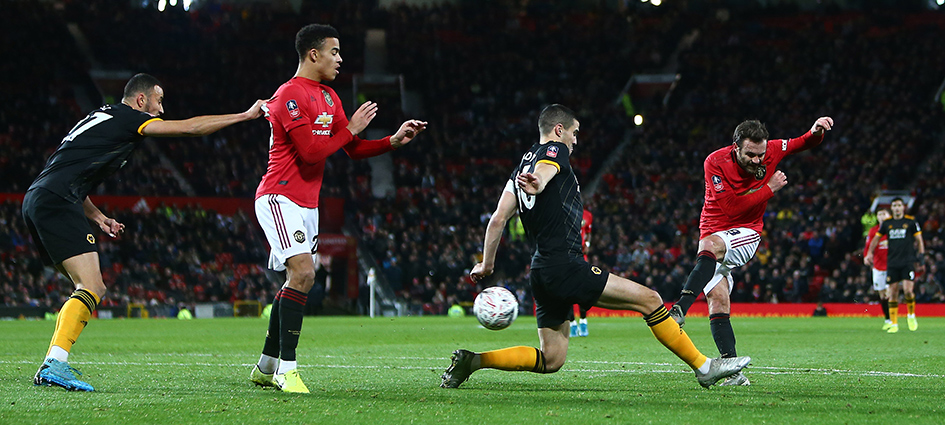
How data, video and elite case studies can make you a better coach
- Peter Glynn
- 02 June 2020
Candidates on The FA’s A Licence course are being challenged to develop their technical and tactical knowledge through the use of data, video content and elite game case studies. A process currently delivered through FA Learning’s new YouTube channel.
In 2018/19 Wolves finished 7th in the Premier League, in turn qualifying for Europe. Part of Nuno Espirito Santo’s side’s success was their defensive strategy - an aspect of their game plan studied by candidates on the UEFA A Licence course.
“The initial reason we chose Wolves as a case study was because the data told us that they were particularly efficient at defending in their defensive third,” explains Phil Church, FA national coach developer and tutor on the A licence and UEFA Pro Licence courses.
“They had a particularly high level at allowing opposition players and teams to get into their defensive third with regularity.
“But from there they stopped them penetrating into the box and prevented them having shots on target or off target from that area - which was interesting. They were the highest in the division for that strategy.”
Selecting tactical case studies based on data ensures the A licence course provides candidates with modern and relevant elite game examples underpinned with data and evidence.
Much of this content is now publicly available through FA Learning’s YouTube channel which has been used to support coaches through the lockdown period.
“We’re living in a world now where we’ve got so much information around the game from numbers, objective data and video content,” explains Laura Seth, FA performance analysis education lead.
“On our course delivery we’re trying to show good examples of the way we can use that information to help the candidates.”
Case studies are designed to help candidates understand the six different areas of the England DNA: build, create and finish the attack and defending in a low-block, mid-block and high-press.
“We’re trying to take the information that’s available to us and identify teams that are successful in those phases,” adds Seth.
“So, rather than using our subjective assessment does the data suggest that there’s interesting case studies to look at?”
As well as Wolves, candidates on the A Licence will study Liverpool, Manchester City, Arsenal Women, Reading Women as well as other teams across the England DNA game phases.
How to translate content for the training pitch How the information is then translated and applied in different coaching environments is a key task for both tutors and candidates on the course.
“Most importantly we ask candidates what these parts of the game look like in their world,” explains Church.
“We ask ‘in your role and your roles previously, what does the low-block look like? Is this consistent with the examples we have shown? What’s the same? What’s different?’ And then we start to pick out some of the detail from there.”
Video examples are overlaid with graphics and prompts to help coaches focus on the key aspects of each tactical approach.

“The telestration graphics are really important because it does highlight certain aspects that we think are important,” explains Church.
“In this example of Wolves and Manchester United it highlights the shape of the team, distances between the units and individuals. You can see the whole depth of the team and the body shape of individuals.
“What is really good is that coaches can start to use some of this information to inform discussions around session design.”
The changes to course content do not replace on the pitch coaching with players, but complement the practical delivery.
Future coach as analyst and content producer

Seth believes successful coaches of the future will become content experts with the skill and ability to create content for their players without having to rely on analysts.
“You only have to look at some of the top coaches in the game - there are images of Guardiola sat on his laptop reviewing his game on analysis software after winning the league title at Brighton at the end of last season.
“Lee Johnson at Bristol City in the Championship has his own Coach Paint licence and is reviewing footage and telestrating and highlighting footage in the moment with his players.
“Our England national team coaches have to be proficient in their use of analysis tools and software, it’s part of the job advert that goes out in the recruitment of those guys.
“Their role with our national teams is to be really hands on in terms of reviewing and generating video content.
“It’s a massive part of a coaches toolkit and I don’t believe the level of analysis and technology involved is going to go away. It’s here to stay and it’s only going to get greater.”
To learn new skills and to enhance your technical and tactical knowledge, visit our webinar playlist on YouTube.
Article image courtesy of Phil Oldham/BPI/REX.


